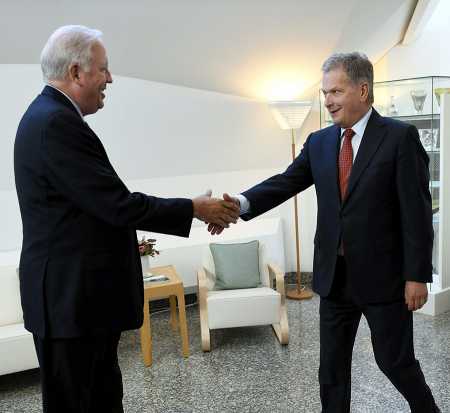"I find hope in the work of long-established groups such as the Arms Control Association...[and] I find hope in younger anti-nuclear activists and the movement around the world to formally ban the bomb."
U.S., Russian Strategic Stability Talks Begin
The United States and Russia held a first round of strategic stability talks Sept. 12 in Helsinki, reportedly agreeing to continue implementing the nuclear weapons limits under the 2010 New Strategic Arms Reduction Treaty (New START). The specific agenda was not disclosed. “The discussions provided both sides with an opportunity to raise questions and concerns related to strategic stability and also to clarify their positions on that matter,” U.S. State Department spokeswoman Heather Nauert told reporters in Washington afterward. Neither side provided any information about further talks.
 The U.S. delegation was led by Thomas Shannon, undersecretary of state for political affairs, and the Russian delegation was led by Deputy Foreign Minister Sergei Ryabkov.
The U.S. delegation was led by Thomas Shannon, undersecretary of state for political affairs, and the Russian delegation was led by Deputy Foreign Minister Sergei Ryabkov.
Joining Shannon in the U.S. delegation were representatives from the White House and defense and energy departments. The Russian delegation also included representatives from the across the government.
The talks come amid deep divisions on a host of bilateral issues, including arms control. (See ACT, September 2017.) A State Department official was quoted by the Russian news agency Tass before the talks as saying that the aim is to exchange views, dispel misinformation and misperceptions, and “work toward creating a more functional relationship.” Ryabkov told reporters afterward that the two sides agreed to continue implementing New START, which sets a limit of 1,550 deployed strategic warheads and 700 deployed delivery systems effective February 2018.—KINGSTON REIF
